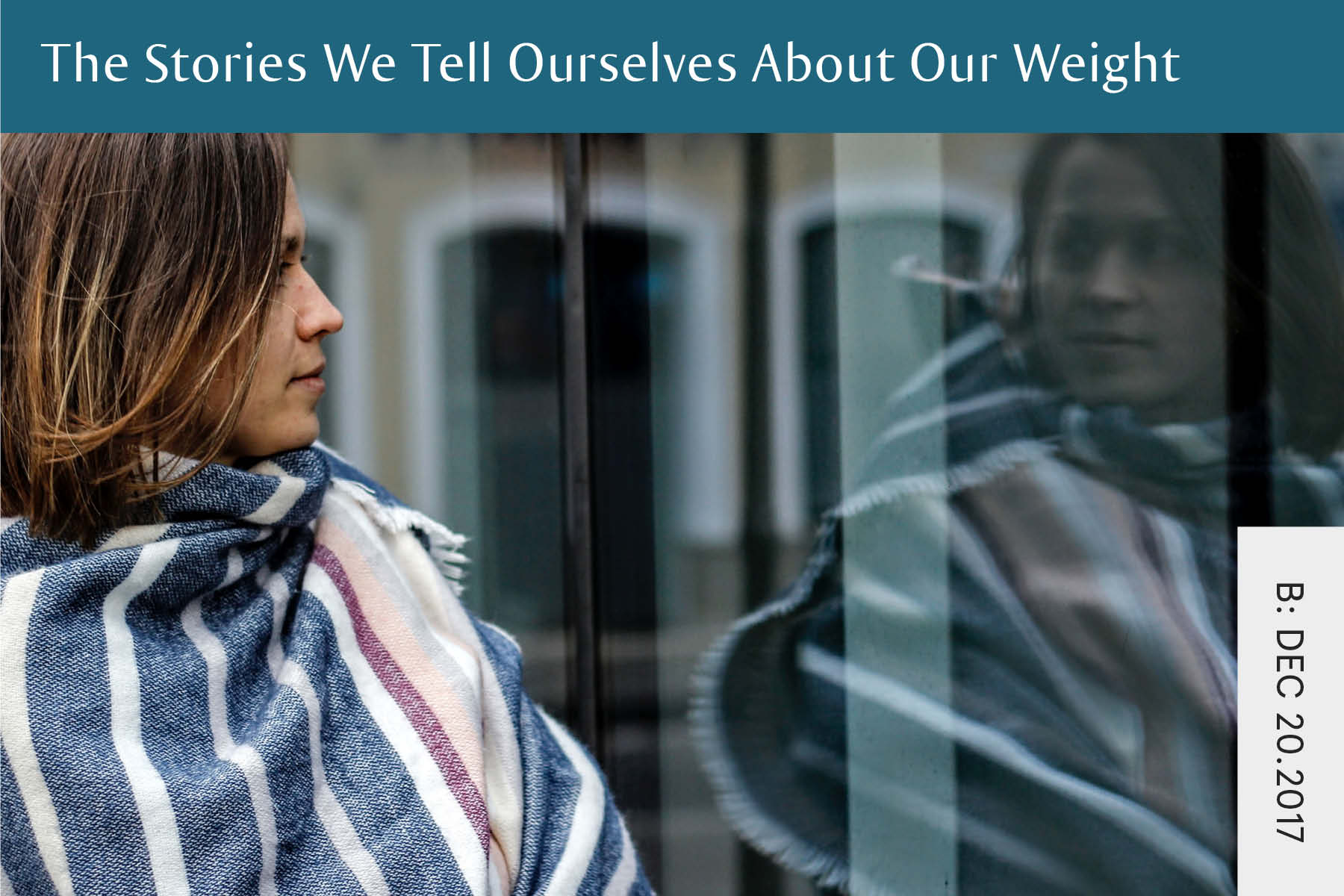

A client recently sent me an email telling me about a show she’d watched called The Truth About Slim People. She wanted to know what I thought about it.
I rarely watch shows of this nature, as I just find myself getting angry or saddened at the misinformation. But despite my usual abstaining, I decided to check it out.
The Truth About Slim People followed two individuals, a male and female, who were slim but didn’t diet. They had been slim all their lives despite “putting in no effort”. Friends, partners and colleagues all testified how unfair it was that they were slim despite eating large volumes of food.
To capture the entire goings-on, producers set up cameras in the subjects’ homes and offices so they could secretly film them over the course of five days. Even when they popped out to the shops or went out to dinner, they were secretly filmed.
This footage was then shown to a dietician and other health experts to try and understand why they were slim.
And this was the big issue for me with the show (there were actually lots of issues but let me focus on the major one).
They already knew the outcome (that the individuals were thin) and now they were trying to create a story about why this was the case. This meant they got to highlight the “good” bits and then downplay the “bad” bits or try to explain away any exceptions.
For example, the male ate most of his meals in front of the TV or his computer at work. After lunch he’d eat a whole packet of biscuits. On the night he went out to dinner, he ate plate after plate of food, with the dietitian estimating he’d consumed around 3,000 calories.
The female ate multiple meals at McDonalds. She ate incredibly quickly, barely chewing. On a night out, she had 3 or 4 big glasses of wine. She had no pattern or consistency to her eating – some days having a big breakfast, other days just coffee; often going long periods between meals, then eating pastries. She ate doorstop-sized chunks of cheese regularly.
So all of this got explained away and made out as no big deal. They talked about how the individuals slept well, did exercise they enjoyed (once a week), ate fruits and vegetables, were happy people and overall the dietician “believed” they didn’t eat too many calories. This was why they were slim.
But let’s imagine the show was called The Truth About Fat People. That everything was the same except these two individuals weren’t slim, they were in heavier bodies. I’m sure all of the behaviours that were easily explained away would have been center stage. These would be the reasons pointed to for why they were heavier.
Because the truth is, there was nothing special about what these slim individuals were doing.
And I know this better than most. Like the individuals in the program, I’ve always been slim. And even when I try my hardest to put on weight, as I did in this over eating experiment, my body fights back and the scale barely budges.
I bet there are people eating and living in almost identical ways to me and rather than everyone being slim, they would be at all different points along the weight spectrum.
People need to be aware of stories they tell themselves about their weight.
If you stand on the scale and it shows a lower number, you remember all the times you were “good”. But when the opposite happens, and the number is higher, you remember all the “bad” decisions. The number guides the narrative that we tell ourselves about our behaviour.
Undeniably, there are things that people can do that make it more likely they will weigh more or less. But, most often we single out these drivers after the fact; once we know the weight, then we pick the “factors” that match the result.
So while the show was able to create a story about why these individuals were thin, the actual answer, more than anything else, is luck. These two people live in bodies that want to be a shape and size that society appreciates and this is through no choice of their own.
The show simply reaffirmed why I avoid television like this and why I believe people need to be conscientious with the media and/or health advice that they consume. Because what makes an interesting story isn’t always the truth.
I’m a leading expert and advocate for full recovery. I’ve been working with clients for over 15 years and understand what needs to happen to recover.
I truly believe that you can reach a place where the eating disorder is a thing of the past and I want to help you get there. If you want to fully recover and drastically increase the quality of your life, I’d love to help.
Want to get a FREE online course created specifically for those wanting full recovery? Discover the first 5 steps to take in your eating disorder recovery. This course shows you how to take action and the exact step-by-step process. To get instant access, click the button below.
Discover the First 5 Steps To Take In Your Eating Disorder Recovery
Get started the right way and be on the path to full recovery and the freedom it will bring YOU.
Unlike other approaches focusing on just one aspect of recovery, this course shares a framework that demonstrates what full recovery is really about and gives you the tools to get there.
Get Instant Access!
Share
Facebook
Twitter